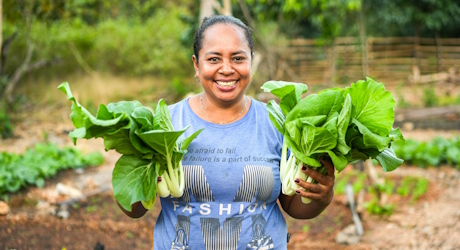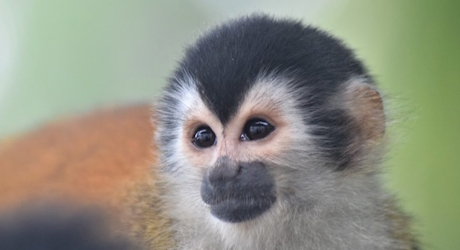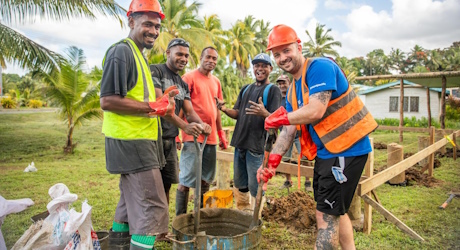Footprints Project
Since 2005, travelers like you have helped us change the world through micro-donations.
.jpg)
-
A total of
4057
Travelers
-
donated
$25035.05
(100% funded) -
to help improve
Health
-
impacting
250
people -
in
Australia
Project Background
The World Health Organization’s goal was to eliminate trachoma globally by 2020. We have made steady progress towards this goal in Australia, with trachoma rates in at-risk communities falling by 17% in the last six years.
However, some areas of Australia have seen an increase in the number of hyper-endemic communities – 24 communities with hyper-endemic trachoma were reported in 2019 compared to 13 in 2008. In these communities, 20% of children have trachoma. All live within the Tri-State Region in Central Australia, covering parts of the Northern Territory, Western Australia, and South Australia.
Over the last two years, COVID-19 has delayed and restricted access into communities that need help to fight this disease and reduce the spread. In 2022, The Fred Hollows Foundation will be able to return into these communities and work with our partners to deliver trachoma treatment and educate about prevention.
The Aboriginal Liaison Officer (ALO) role is crucial to the trust and cultural safety of the service provided in Alice Springs. The ALO communicates directly with patients needing eye surgery, explaining the process to them in familiar ways, and ensuring they feel supported during their pre-op appointments.
Key Project Activities
The ALO based at the Alice Springs Hospital works closely with the outreach ophthalmology team, visiting communities and providing information about eye health services, hospital processes, clinical treatment procedures, and support for travel and post-operative care. The outreach team provides eye health services to an area the size of Western Europe (800,000 km2), and a population of over 50,000 people.
The ALO provided cultural, emotional, social, and language support to patients when accessing eye health services – recognizing that Central Australia is home to 16 main Indigenous Australian language groups and over 20 different dialects. For many Aboriginal people in the region, English is a second or third language. The ALO's assistance in language and translation is integral to ensure that patients have a strong understanding of their own health and can provide free, prior-informed consent for surgical treatment. By offering holistic support and guidance, the ALO helps alleviate
fears and concerns that community members may have about attending appointments with the ophthalmologist and the eye health team. The ALO's presence ensures that patients feel more comfortable and are more likely to attend their appointments, despite the potentially intimidating nature of eye procedures and the costs and challenges associated with traveling to Alice Springs.
Additionally, the ALO serves as a cultural broker, addressing negative experiences that patients may have had in hospital settings, such as having to leave their country for extended periods or encountering institutional racism. The historical contexts and generational trauma, particularly prevalent in Central Australia, have contributed to a deep-rooted distrust in government and mainstream institutions. The ALO's understanding and acknowledgment of these issues are crucial in fostering trust and bridging the gap between patients and healthcare providers.
By combining language support, translation services, community connection, and cultural brokerage, the ALO plays a multifaceted role in ensuring culturally safe and responsive eye health care. By building a strong and culturally competent workforce, the Alice Springs Eye Health Hub initiative aims to bridge the gap in eye health outcomes and provide equitable access to eye care services in Central Australia.
Key Project Outcomes
Among the total number of beneficiaries screened, 70 received treatments, and 55 received surgeries.
Given the current health landscape of Central Australia, the project has done an amazing job and maintaining the trust, cultural safety, and respect of patients during a time of disruption, lacking resources, and COVID-19 repercussions. Veronica, the ALO, has chosen to give back to her community, rather than travel inter-state or to more urban settings to provide eye health services. The impact of her work goes far beyond the numbers in the report. Her work means that Aboriginal and Torres Strait Islander people in the area know of the service, hear about it at community events, and can exercise self-determination when it comes to accessing eye health.
While the numbers may not appear as we predicted or had hoped, they represent more people learning and accessing the service that would otherwise not have had access to care or had the opportunity to learn about the services available to them.
The project has delivered the expected outcomes because the goal of Central Australia Health Service (CAHS) is to have a culturally responsive service by employing an ALO to support eye health services. It’s not about the number of patients screened but about the quality of the service and the trust and mutual respect established by delivering a service like this. This quote from Veronica summarises it best:
“She, [a patient] needed help so I was with her in the theatre to hold her hand. I had tears in my eyes. It was so amazing."
Community involvement
The Fred Hollows Foundation’s work in Australia is reliant on the work of our Program Partners to deliver the services. For this project, our partner is CAHS (managed by the state government). They support eye health services and other services to patients in and around the Central Australia region. This service partners with other Aboriginal Health Services such as the Anyinginyi Health Service in Tenant Creek. With The Foundation’s support, in early 2023, they worked together to maximise support for an eye surgery intensive in Alice Springs where 18 patients were operated on for conditions like cataract.
Congress, with whom The Foundation works closely, already provides Primary Health Care (PHC) coverage for a large portion of the region and has strong and trusted relationships with other PHC providers to ensure the proposed program's success. We will ensure the extended reach of the program by fostering new and existing partnerships with other organisations when and if needed.
Congress has a long history of collaboration, partnership, and contract management with different sectors at all levels, within and outside Congress. In particular, Congress has demonstrated its ability to work effectively and collaboratively with both government and non-government stakeholders.
This collaboration has already led to the increased reach of our programs’ messaging and activities to community members.
What's next?
Our Program Partners will continue to deliver several population health promotions, healthy living/lifestyle, prevention, and self-management support activities in Alice Springs and remote communities, including:
- Employing an Eye Health Coordinator who ensures that many Aboriginal people access comprehensive eye-health checks through the Visiting Optometry Scheme. The coordinator proactively participates in multiple stakeholder engagement forums to improve eye health services across Central Australia.
- Congress’ dedicated Health Promotions team organizing several activities to optimise health and well-being, e.g. the Right Tracks Program engages young men and women through sports to make healthy life choices.
- Delivering the Tackling Indigenous Smoking Program across all communities to support quit attempts and prevent smoking uptake.
- Providing dietetic education to individual clients and health teams across our town and remote clinics.
- Conducting audits of repairing and maintaining public housing in remote communities to ensure residents have a healthy living environment.
- Delivering Tackling Indigenous Gambling program to reduce gambling-related harm
- Delivering other programs such as Congress’s Community Healthy Education Program and Food Security Program.
While we work with Alice Springs Hospital to recruit, we will be supporting the Alice Springs eye health hub project with Dr Tim Henderson, Ophthalmologist, and his team at ASH. This project will require a multi-million-dollar investment to ensure the regional eye health program has the infrastructure, equipment, and staff to function in a hub-and-spoke model to address the needs of the Central Australia region.
The hub project will begin in 2023, to support the development of a semi-autonomous eye health unit within the hospital that will enable the eye program to manage and plan its own resourcing. Further planning and fund raising through multiple income streams will help to implement other components of the hub model in the coming years. We have built a concept brief on the project with ASH and are looking for seed funders to establish the hub with equipment, ensuring theatre spaces are up and running and workforce positions are filled, including an ophthalmic nurse and eye service manager role.
Traveling soon? When you buy travel insurance with us, you can make a contribution towards a cause you care about.
Get a quote






